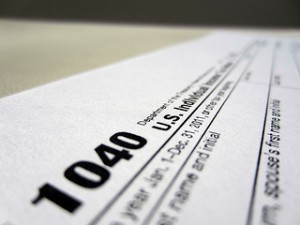Report: The Backstory on Who “Doesn’t Pay” Taxes
 By Monique Coppola, Public News Service
By Monique Coppola, Public News Service
Chuck Marr, director of federal tax policy for the Center on Budget and Policy Priorities (CBPP), is co-author of a new report, Misconceptions and Realities about Who Pays Taxes. He says one of the biggest public misconceptions is that almost half of Americans don’t pay taxes.
“We’re talking here about federal income taxes. For working-class and middle-class people, payroll taxes that pay for Social Security and Medicare are actually taxes that they do pay. And in fact, most people pay more in payroll taxes than in income taxes.”
Marr says the 47 percent and 57 percent figures cited lately regarding people who do not pay federal income taxes were taken from reports that looked at numbers during the recent recession, when people lost jobs and were paying much less than in previous years.
“When a person’s income falls during a recession, they pay less tax, and same with a business – and that allows them, helps them, to get back on their feet. You wouldn’t expect someone to pay the same amount of tax if they’re making half the money that they used to make.”
According to the report, in 2007 – prior to the recession – the percentage of people who did not pay federal income tax was 40 percent.
Marr says much of the debate that implies people are “victims,” or are somehow not paying their fair share in this country, is also misguided.
“They get up every day, they go to work, they work hard and they work in jobs. They work in nursing homes and take care of elderly people, people who are school aides, people who work in all of our stores. So, they’re working hard and are very much contributing to society.”
Other taxes – such as state, local and sales taxes – also are a big part of the equation, says Marr. According to the report, when considering all taxes, the bottom 20 percent of households pay an average of 16 to 17 percent of their incomes in taxes.
Most people who do not pay federal income tax or payroll tax are low-income seniors, people with serious disabilities, or students – and the latter group becomes future taxpayers. And in the case of seniors, the report notes they likely paid federal income taxes during their working years.
The report is online at cbpp.org.
This article was first published by Public News Service.
The Public News Service (PNS) provides reporting on a wide range of social, community, and environmental issues for mainstream and alternative media that amplifies progressive voices, is easy to use and has a proven track record of success. Supported by over 400 nonprofit organizations and other contributors, PNS provides high-quality news on public issues and current affairs.
[Photo by 401(K) 2012]
